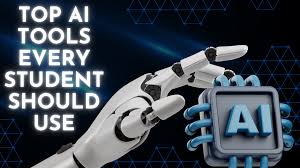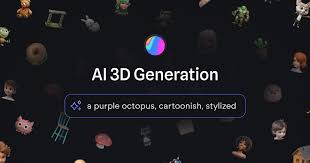
A New Era in Online Education: How AI is Shaping the Future of Learning
Online education has undergone a tremendous transformation in recent years. What once seemed like a niche or alternative to traditional classrooms has now become a mainstream method of learning for millions of students across the globe. The advent of Artificial Intelligence (AI) has been a major catalyst in this transformation, reshaping the way courses are delivered, how students learn, and how educators can tailor their teaching methods. In this blog, we'll explore how AI is ushering in a new era of online education and what it means for students, educators, and the learning experience as a whole.
1. Personalized Learning Paths
One of the most exciting advancements in AI-powered online education is its ability to deliver personalized learning experiences. AI algorithms analyze individual student performance, preferences, and learning styles to offer a customized learning path. Whether a student is struggling with a particular topic or excelling in others, AI systems adapt the course material to match their pace and needs.
For example, platforms like Coursera and Khan Academy utilize AI-driven recommendations to suggest courses and learning materials based on a student's interests, previous courses taken, and areas where they need improvement. This means that students can follow a learning trajectory that’s tailored to their specific goals, making education more efficient and accessible.
2. AI Tutors and Virtual Assistants
AI-powered chatbots and virtual tutors are no longer science fiction—they are a reality in modern online learning platforms. These tools are capable of answering student questions in real-time, offering explanations of concepts, and even providing additional resources.
For instance, AI tutors like Squirrel AI in China have shown impressive results by offering 1:1 tutoring at scale. They assess students’ proficiency in subjects and create targeted, adaptive learning strategies. Similarly, platforms such as Duolingo for language learning use AI to adjust lessons based on the learner’s progress and challenges, enhancing the learning process without the need for a human tutor.
AI-powered virtual assistants, such as those on Google Classroom and Microsoft Teams, also help students manage their schedules, submit assignments, and receive reminders, creating a more efficient and organized learning environment.
3. Intelligent Content Delivery
The rise of AI allows content to be delivered in more dynamic and engaging ways. Gone are the days of static video lectures and textbook readings. AI can now help create interactive learning materials such as quizzes, simulations, and even virtual labs that engage students in hands-on learning.
Moreover, AI can assist in analyzing and generating educational content. For instance, AI can identify gaps in existing curriculum materials and suggest areas that need improvement. AI tools are even capable of generating quizzes, assignments, and assessments that are customized to the difficulty level and pace of the student.
4. Automated Assessment and Feedback
Assessing student performance has traditionally been a time-consuming process for educators. However, AI-powered grading systems have made it easier and faster to assess students’ knowledge in a more objective manner. Platforms like Gradescope use AI to grade assignments, especially in subjects that involve large amounts of written work, such as essays or problem-solving exercises.
Beyond grading, AI also provides immediate and actionable feedback to students. Instead of waiting days or weeks for results, learners can receive instant insights into where they went wrong and how they can improve. This real-time feedback loop accelerates the learning process, helping students grow and evolve faster.
5. Data-Driven Insights for Educators
AI’s ability to process vast amounts of data allows educators to gain valuable insights into student performance. By collecting and analyzing data on how students interact with course material, AI can identify trends, patterns, and potential areas of improvement. This data helps instructors identify struggling students early on, adjust course materials to better suit the class, and enhance their teaching strategies.
For instance, platforms like Canvas and Moodle use data analytics to track student engagement, identify who may be at risk of falling behind, and provide educators with information that allows them to intervene proactively. This data-driven approach leads to more effective and efficient teaching practices.
6. Enhanced Collaboration and Social Learning
While online learning may have once been seen as isolating, AI is fostering greater collaboration among students. AI tools help students work together in virtual group projects, assign tasks based on individual strengths, and provide ongoing feedback on team dynamics.
AI-based platforms can also simulate classroom interactions, enabling students to engage in peer-to-peer learning. For example, AI-powered discussion forums automatically prompt students with relevant questions, sparking meaningful conversations and creating a virtual community where learners can exchange ideas and insights.
7. AI in Accreditation and Credentialing
AI is also changing the way we view accreditation and credentials. Traditional degrees and certifications may soon be supplemented or even replaced by digital credentials powered by AI. These credentials are more detailed, offering specific insights into a learner’s competencies, skills, and achievements.
Blockchain technology, combined with AI, is already being used to verify and secure digital credentials. This creates an opportunity for employers and institutions to evaluate a candidate's qualifications more transparently, removing biases inherent in traditional credentialing systems and offering students more opportunities for recognition.
8. The Future of AI in Education
As AI technology continues to evolve, the potential for its impact on online education seems limitless. In the near future, we may see more sophisticated AI systems that can assess emotional states to create emotionally aware learning environments, or AI-driven immersive experiences through augmented and virtual reality (AR/VR). Furthermore, as AI learns to better simulate human-like interactions, we could see even more engaging and interactive educational experiences that replicate in-person learning.
Conclusion: Embracing AI for a Smarter, More Inclusive Education
AI is undeniably transforming the online education landscape, bringing with it a wave of opportunities for personalized learning, real-time feedback, enhanced collaboration, and much more. While challenges related to ethics, data privacy, and equity remain, the benefits of integrating AI in education are clear.
As AI continues to evolve, it will enable educators and learners to create a more tailored, efficient, and accessible learning experience, making education available to anyone, anywhere, at any time. The future of education is here, and it's powered by AI.

